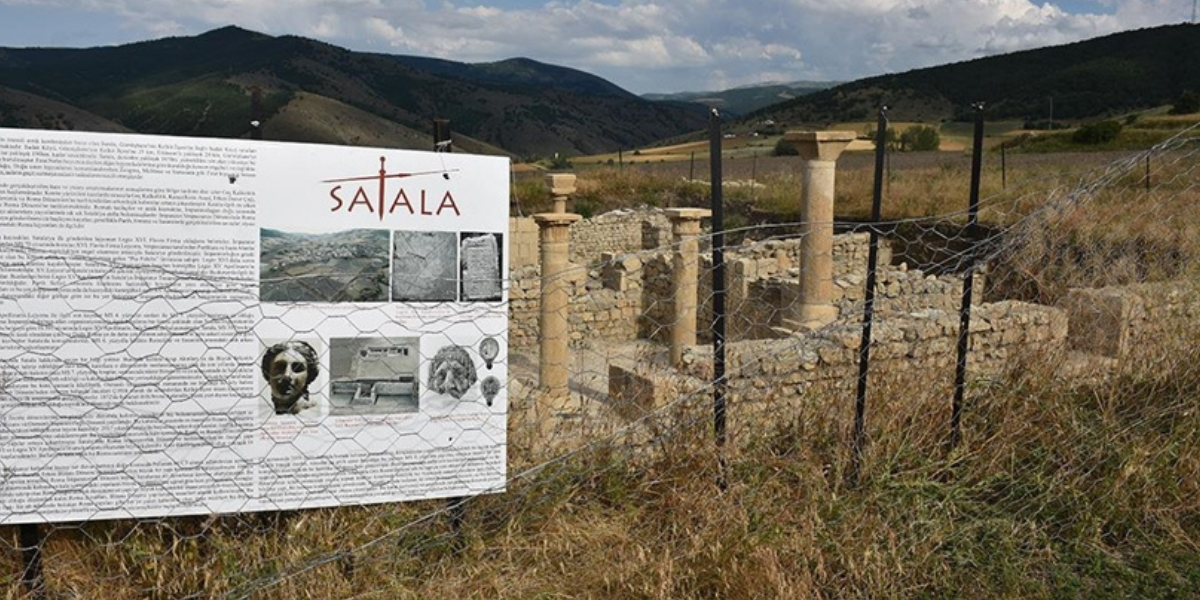
New season excavations in the ancient city of Satala begin
New season excavations begin in the ancient city of Satala, which dates back to the Bronze Age.
Satala Ancient City is located in the Kelkit district of Gumushane in the Eastern Black Sea Region of Türkiye.
Satala, which gathered Antioch, Cappadocia and Trabzon at a crossroads, was an important fortress in the defense of Rome, especially against the raids of the Persian army.
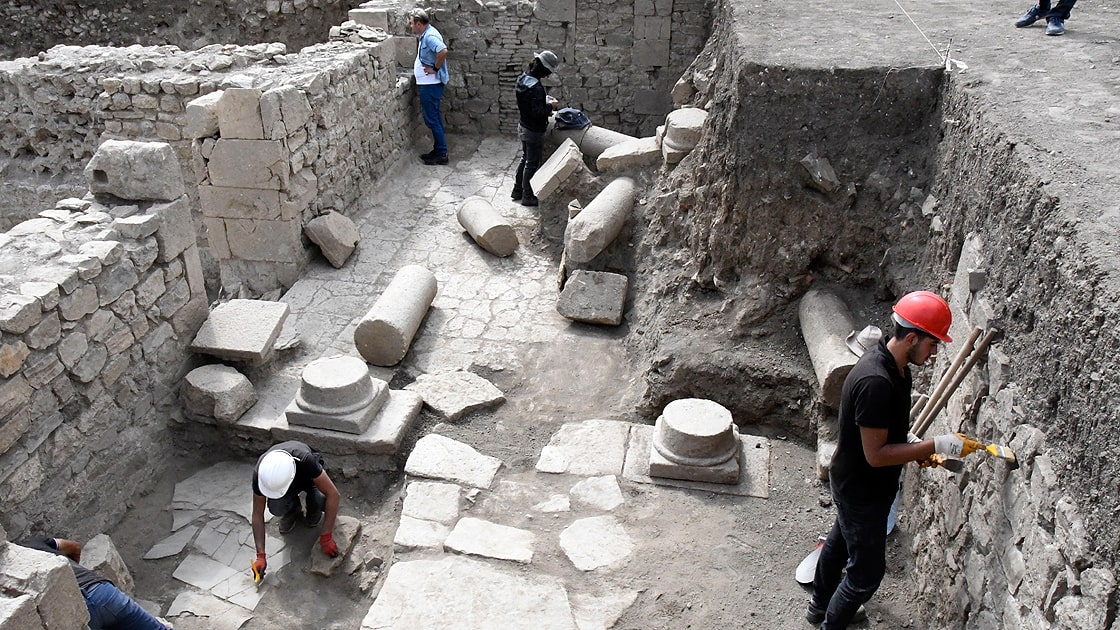
One of the most important legion camps of the Roman Empire in Anatolia, the ancient city was founded by Emperor Vespasian in 72 AD and continued its existence as an important military and commercial center until the 6th century.
The ancient city of Satala was discovered in the 19th century and excavations have been carried out since the 20th century.
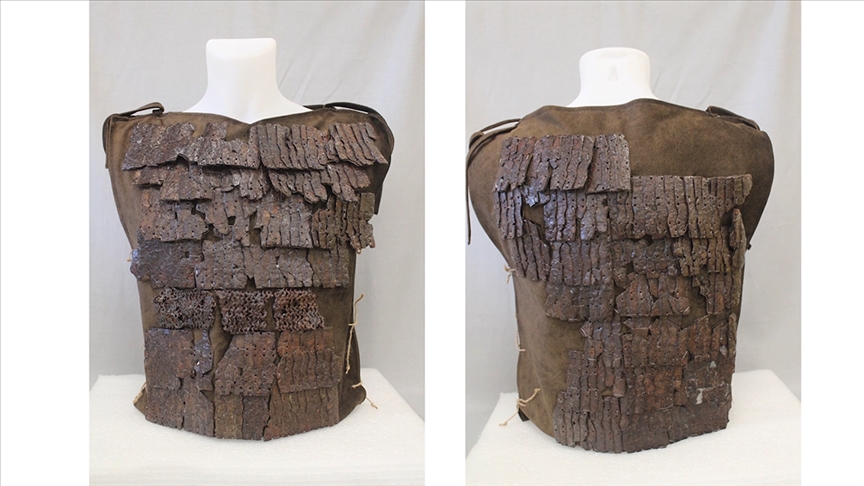
The works in the legion castle of the ancient city will start on Tuesday, July 16, under the chairmanship of Elif Yavuz Çakmur, Assistant Professor of Archaeology at Karadeniz Technical University Faculty of Letters, Department of Archaeology.
So far, a structure, cistern, bath structure and various mosaics, which are thought to be a castle, aqueduct or church, have been identified in the city.
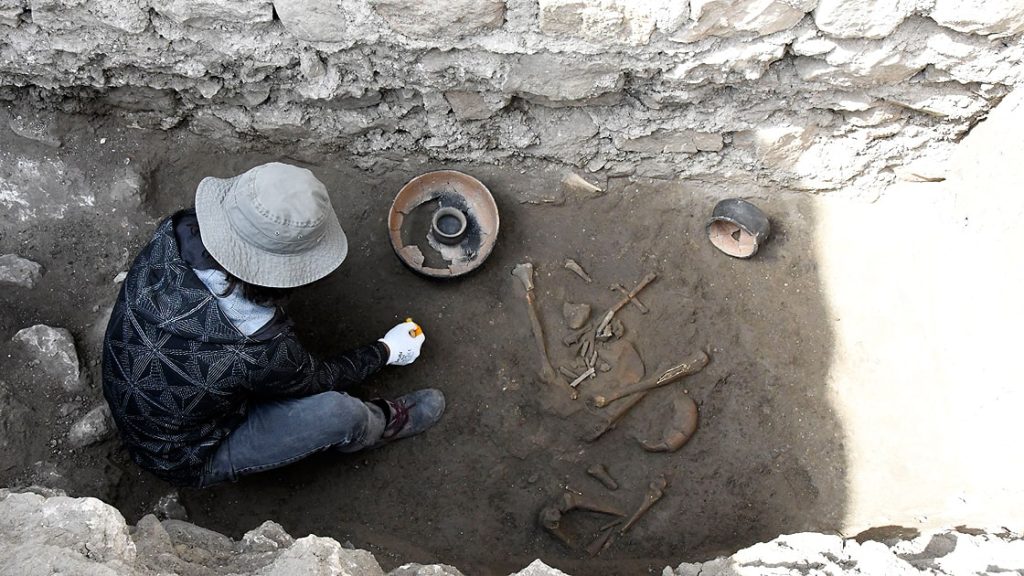
In the 2021 excavation season, traces of the Urartians, one of the Late Bronze Age civilizations, were found.
The excavations revealed the grave of an individual buried in the fetal position. Vessels from the Late Bronze Age were also found.
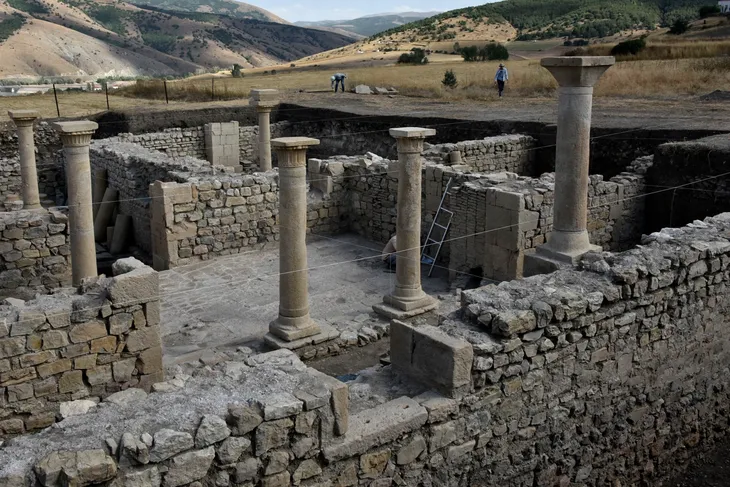
The artifacts unearthed during the excavations are exhibited in the Gümüşhane Museum.
Cover photo: Sinan Uçar/AA
You may also like
- A 1700-year-old statue of Pan unearthed during the excavations at Polyeuktos in İstanbul
- The granary was found in the ancient city of Sebaste, founded by the first Roman emperor Augustus
- Donalar Kale Kapı Rock Tomb or Donalar Rock Tomb
- Theater emerges as works continue in ancient city of Perinthos
- Urartian King Argishti’s bronze shield revealed the name of an unknown country
- The religious center of Lycia, the ancient city of Letoon
- Who were the Luwians?
- A new study brings a fresh perspective on the Anatolian origin of the Indo-European languages
- Perhaps the oldest thermal treatment center in the world, which has been in continuous use for 2000 years -Basilica Therma Roman Bath or King’s Daughter-
- The largest synagogue of the ancient world, located in the ancient city of Sardis, is being restored

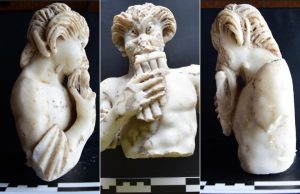
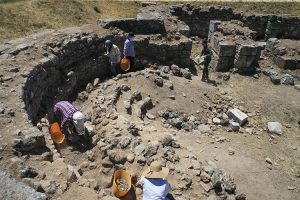
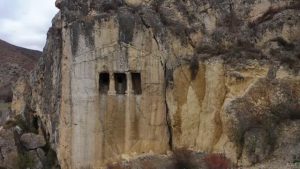
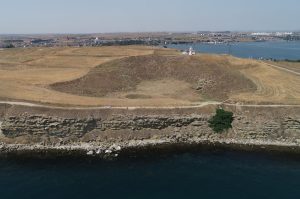
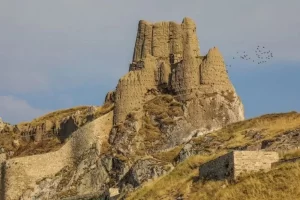
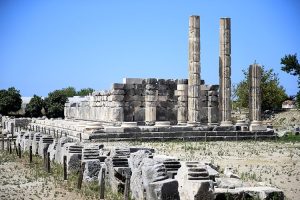


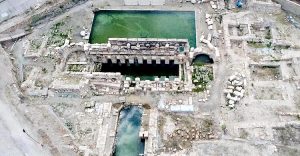
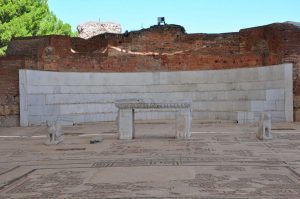
Leave a Reply